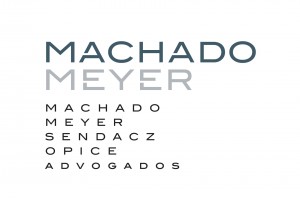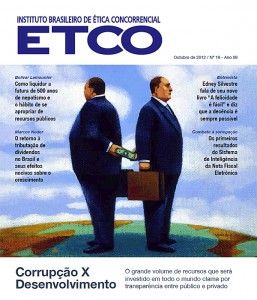 Machado, Meyer, Sendacz and Opice Advogados, through their practice area Compliance and Corporate Integrity, led by lawyer Leonardo Ruiz Machado, will support the Brazilian Institute for Competition Ethics (ETCO) in the actions developed by the entity with a focus on supporting the fight against corruption. The partnership was built in a meeting held with ETCO's executive president, Evandro Guimarães, on July 3, at the institute's headquarters in São Paulo.
Machado, Meyer, Sendacz and Opice Advogados, through their practice area Compliance and Corporate Integrity, led by lawyer Leonardo Ruiz Machado, will support the Brazilian Institute for Competition Ethics (ETCO) in the actions developed by the entity with a focus on supporting the fight against corruption. The partnership was built in a meeting held with ETCO's executive president, Evandro Guimarães, on July 3, at the institute's headquarters in São Paulo.
At the time, the participation of the lawyer as a speaker in two events on Law 12.846 / 13, also known as Anticorruption Law, which are being organized by ETCO was agreed. The seminars, with a date to be defined, will discuss the impacts of the new law for companies, especially with regard to the relationship with public agents. The Anti-Corruption Law has been in force since January 29, although it has not yet been regulated by the Federal Executive Branch with respect to one of its most innovative points: compliance.
In addition to participating in the seminars, Machado Meyer will collaborate with ETCO in the development of other initiatives to support the fight against corruption scheduled for 2014.
About Machado, Meyer, Sendacz and Opice
Founded in 1972, Machado, Meyer, Sendacz e Opice Advogados is one of the most respected law firms in Brazil. With operations in all areas of law, it offers legal assistance to national and international clients, including large corporations from the most varied sectors of activity, financial institutions and government entities. The office is present in São Paulo, Rio de Janeiro, Brasília, Belo Horizonte, Porto Alegre and New York.
Click here to learn more






